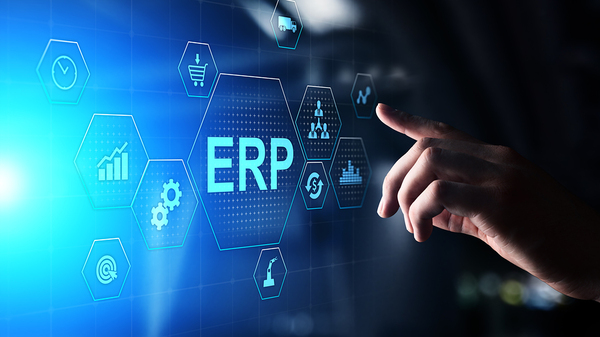Imagine an effortless student admission and registration experience on campus; that is what a university ERP system can accomplish for your institution.
Higher education ERP systems help streamline administrative tasks, automate processes and gain valuable insights through data analytics tools. Plus they’re accessible on mobile devices so people can stay in the know wherever they are working together on school matters.
Streamlined Administrative Processes
One of the primary challenges associated with managing an educational institution is keeping tabs on student information at all times, whether that be admissions, progress, attendance, academic grades or behavior. Information must be centralised so it can be easily accessed by faculty, administrators, parents and students without hassle – this is what an ERP system does best!
Automation allows universities to save both time and effort that would otherwise be spent on repetitive tasks like collecting forms for processing or transcribing them, which allows staff members to focus on building relationships with students while encouraging academic success.
Automated systems also provide institutions with a clearer overview of student interactions, application patterns and trends that enable them to optimize administrative operations and plan appropriately. Likewise, predictive analytics that utilize student activities and engagements can assist with planning future academic programmes, campus amenities and university endeavors.
Before choosing an ERP vendor for higher education implementation, it is critical to assess their capabilities for user experience, flexibility, and scalability. A modular cloud-based or modular ERP software should integrate smoothly with other systems for quicker growth while reducing costly upgrades or downtime costs. Furthermore, data migration from legacy systems must occur seamlessly so as not to cause disruptions during implementation.
Real-Time Analytics
An ERP system for higher education institutions is more than a technological innovation; it’s an effective strategy to increase institutional efficiency. By centralizing information, streamlining data processing, and encouraging real-time analytics, universities can increase operational capabilities while creating a connected campus environment. However, when selecting an ERP vendor it’s critical that they prioritize educational standards as well as data security compliance.
An intelligent ERP system for university automation features an interactive dashboard that gives faculty, students and administrators clear visibility into their schedules, performance metrics and tasks. Furthermore, this system supports seamless LMS integration and communication platforms, facilitating smooth collaboration and feedback processes. Finally, its scalable storage solutions and cloud integration facilitate easy data accessibility from anywhere at any time.
Automation also streamlines admissions processes, allowing colleges and universities to streamline enrollment management by eliminating manual effort, which reduces errors. Fee management becomes simpler as staff are freed up for more pressing duties; better utilization of facilities with flexible scheduling for classes, events and campus resources ensure greater student engagement and an immersive learning experience; furthermore these advanced ERP systems for universities give institutions an edge in today’s increasingly demanding educational landscape by scaling up during peak seasons and providing instantaneous data insights.
Increased Flexibility
Operating a university is an intricate task requiring multiple departments to collaborate seamlessly. ERP systems provide an essential hub for administrative and academic processes that streamline daily management tasks.
They specialize in streamlining inquiry, application and enrollment management by linking biographic student data together with attendance tracking systems and registration platforms to streamline registration for events. Furthermore, they handle course schedules, participation reporting, certificate/document management as well as faculty hiring profiles while managing inventory such as books and classroom supplies; finally they facilitate tuition/fee management by integrating billing plans and payments.
Modern higher education ERP solutions work particularly well on mobile devices, allowing students and faculty to easily access their information anywhere at any time – thus improving collaboration and communication within classrooms, furthering improving both student experiences and educational environments.
Selecting an ERP software solution for your institution involves careful consideration of both its features and benefits, as well as your long-term growth plans. You need to ensure that it can easily integrate with existing technological ecosystems at school while being adaptable enough to face future challenges and opportunities. Aiming at meeting this goal successfully means working with vendors who understand academic culture while offering experience building cloud-based ERPs specifically designed to support universities.
Enhanced Security
Imagine making admissions and enrollment simple as pressing one button with an ERP system. Automated tasks such as screening applications, document verification, applicant communication and more reduce manual work and room for error while streamlining academic management by scheduling courses, grading students and tracking attendance tracking are also handled efficiently by this software.
An ERP system for higher education institutions also boasts real-time analytics that allow for informed decision-making and position your institution at the forefront of academic excellence. By employing data-driven policy development processes, this allows institutions to quickly respond to changing student trends while managing educational resources more effectively – ultimately improving operational performance and student outcomes.
ERP systems are essential tools for higher education institutions, offering significant advantages to both staff and students alike. When choosing an ERP software system for your institution, make sure it’s secure – these systems handle personal information that needs to be protected against hackers and unauthorized access. Furthermore, ensure it complies with FERPA regulations regarding privacy for both students and staff members.
First step toward successful ERP implementation is accurately assessing your institution’s needs. An accurate evaluation will ensure no key requirement is missed, making the implementation seamless without disruption to university operations. Once an ERP system is operational, its automation reduces administrative processing times while improving communication among staff members and students, leading to increased productivity and higher student satisfaction across campus.


